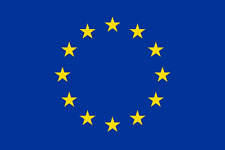CECOP has proudly produced the "ALL FOR ONE" docuseries that deal with the response of worker-owned cooperatives to non-standard employment, following the publication of the "ALL FOR ONE" report. This docuseries was produced in parallel to a communication campaign, and conference that took place in the end of 2020.
The three-part docuseries features Lilith Cooperative in Finland, an interview with Francesca Martinelli of Doc Servizi Foundation, and a statement by CECOP president Giuseppe Guerini.
Episode 1:
Tommi Viitamies, President of Lilith Coop in Finland, gives an introduction of the business model of his cooperative active in the creative sector in Finland. By offering different services to its members, such as accounting and management of intellectual property rights, Lilith allows its members to focus on their core talents. Furthermore, the cooperative helps to overcome the solitude that often comes with independent worker.
Episode 2:
Dr Francesca Martinelli, Director of the Centro Studi Doc Foundation, highlights how many different forms non-standard work can take. From riders of online platforms to artists and personal trainers, workers in non-standard employment can have many professions. These are often dependent on digital tools for matchmaking between the client and the customer. In the field of digital economy, platform cooperatives have developed their own digital tools to ensure that this process is transparent, and that the software is owned by the workers that use it.
Episode 3:
In the last video of the series, CECOP President Giuseppe Guerini highlighted that the adaptability of cooperatives to new challenges is one of their main strengths. In fact, the first cooperatives in Italy were formed by luggage boys in train stations. However, despite the ability to adapt to new challenges of cooperatives, legal frameworks do not adapt at the same pace. He calls policy makers across Europe to pay close attention to the responses to non-standard work and make sure that useful cooperative solutions are taken into account when drafting legislation.







 Employment & Social Inclusion
Employment & Social Inclusion 


